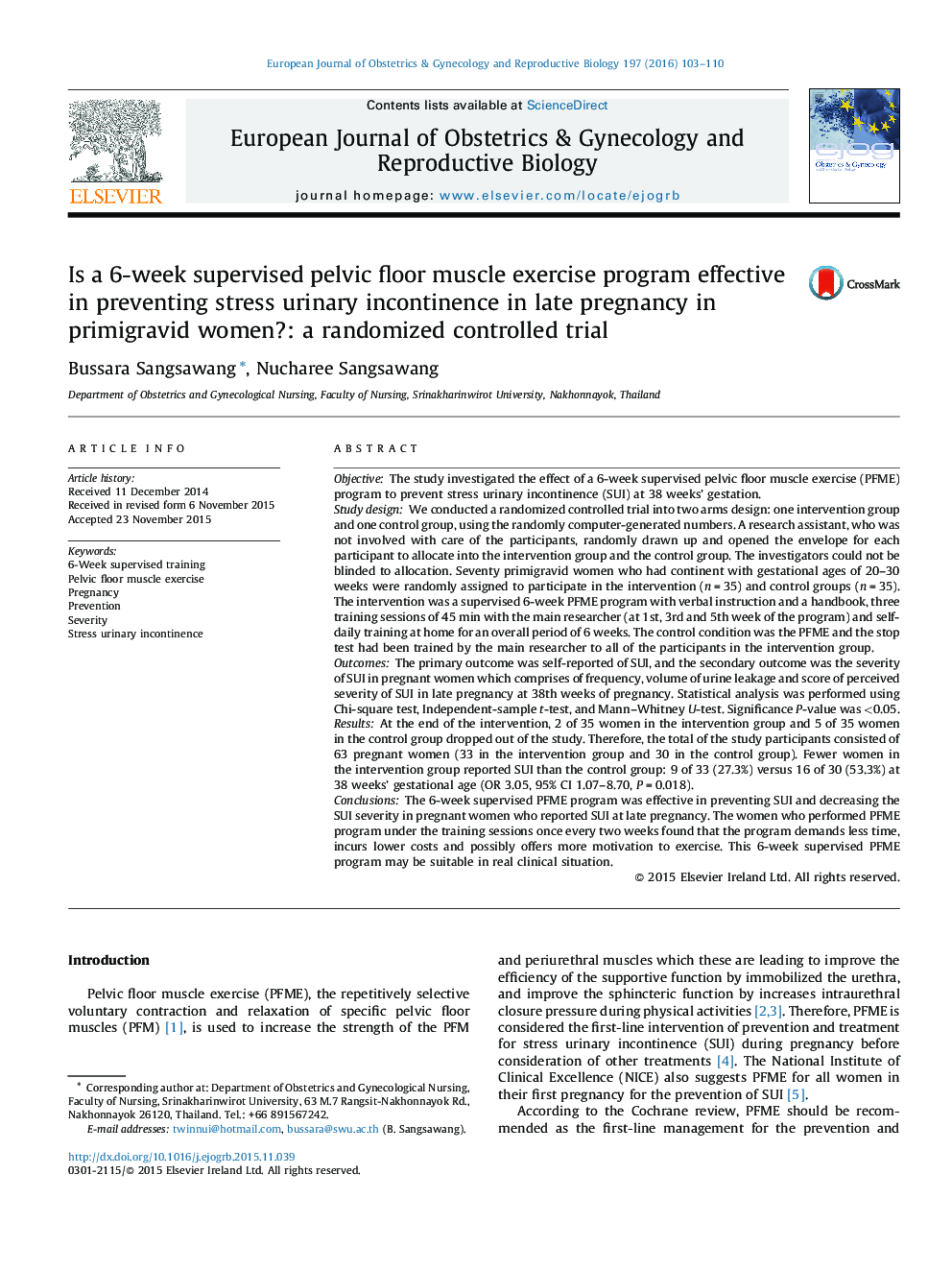| کد مقاله | کد نشریه | سال انتشار | مقاله انگلیسی | نسخه تمام متن |
|---|---|---|---|---|
| 3919463 | 1599784 | 2016 | 8 صفحه PDF | دانلود رایگان |
ObjectiveThe study investigated the effect of a 6-week supervised pelvic floor muscle exercise (PFME) program to prevent stress urinary incontinence (SUI) at 38 weeks’ gestation.Study designWe conducted a randomized controlled trial into two arms design: one intervention group and one control group, using the randomly computer-generated numbers. A research assistant, who was not involved with care of the participants, randomly drawn up and opened the envelope for each participant to allocate into the intervention group and the control group. The investigators could not be blinded to allocation. Seventy primigravid women who had continent with gestational ages of 20–30 weeks were randomly assigned to participate in the intervention (n = 35) and control groups (n = 35). The intervention was a supervised 6-week PFME program with verbal instruction and a handbook, three training sessions of 45 min with the main researcher (at 1st, 3rd and 5th week of the program) and self-daily training at home for an overall period of 6 weeks. The control condition was the PFME and the stop test had been trained by the main researcher to all of the participants in the intervention group.OutcomesThe primary outcome was self-reported of SUI, and the secondary outcome was the severity of SUI in pregnant women which comprises of frequency, volume of urine leakage and score of perceived severity of SUI in late pregnancy at 38th weeks of pregnancy. Statistical analysis was performed using Chi-square test, Independent-sample t-test, and Mann–Whitney U-test. Significance P-value was <0.05.ResultsAt the end of the intervention, 2 of 35 women in the intervention group and 5 of 35 women in the control group dropped out of the study. Therefore, the total of the study participants consisted of 63 pregnant women (33 in the intervention group and 30 in the control group). Fewer women in the intervention group reported SUI than the control group: 9 of 33 (27.3%) versus 16 of 30 (53.3%) at 38 weeks’ gestational age (OR 3.05, 95% CI 1.07–8.70, P = 0.018).ConclusionsThe 6-week supervised PFME program was effective in preventing SUI and decreasing the SUI severity in pregnant women who reported SUI at late pregnancy. The women who performed PFME program under the training sessions once every two weeks found that the program demands less time, incurs lower costs and possibly offers more motivation to exercise. This 6-week supervised PFME program may be suitable in real clinical situation.
Journal: European Journal of Obstetrics & Gynecology and Reproductive Biology - Volume 197, February 2016, Pages 103–110
